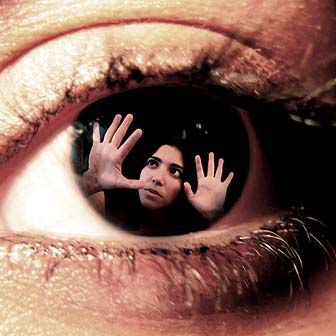 Freemasonry has been a long-time favorite target of conspiracy conspiracy theorists, who see it as an occult and evil power, often associated with Judaism, and usually either bent on world domination, or already secretly in control of world politics.
Freemasonry has been a long-time favorite target of conspiracy conspiracy theorists, who see it as an occult and evil power, often associated with Judaism, and usually either bent on world domination, or already secretly in control of world politics.
Freemasonry is almost universally banned in totalitarian states. In 1925, it was outlawed in Fascist Italy. Allegedly in Nazi Germany, Freemasons were sent to concentration camps and all Masonic Lodges were ordered shut down. German Masons used the blue forget-me-not as a secret means of recognition and as a substitute for the traditional (and too-easily-recognized) square and compasses. According to some interpretations of canon law, Roman Catholics are forbidden to become Freemasons by their church, though Freemasons do not bar Roman Catholics from becoming members. Freemasonry is also discouraged by some religious denominations of Protestantism.
In modern democracies, Freemasonry is occasionally accused of being a sort of club, or network, where a lot of influence peddling, and perhaps illegal dealings, take place. In the early 1800s, William Morgan disappeared after threatening to expose Freemasonry's secrets, causing some to claim that he had been murdered by Masons. In Italy, in the 1970s, the P2 lodge was investigated in the wake of a financial scandal and a suspicious death. As a result, the lodge was expelled from Italian Masonry (although it continued to function independently). In Nice, France, the head prosecutor accused some judges and other judicial personnel of deliberately stalling or refusing to elucidate cases involving Masons. In the 1990s in Britain, the Labour Party government tried unsuccessfully to pass a law requiring all public officials who were Masons to make their affiliation public.
Books You Might Enjoy:
Israel Regardie - The Art Of True Healing
Richard Weiss - Recipes For Immortality
Castells - The Apocalypse Of Freemasonry
James Anderson - The Constitutions Of The Freemasons 1734







